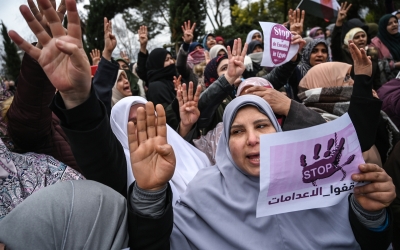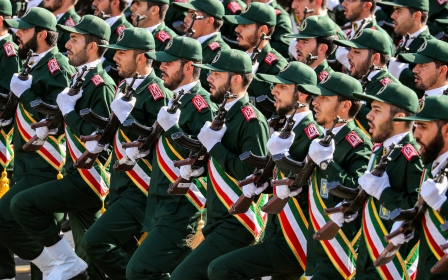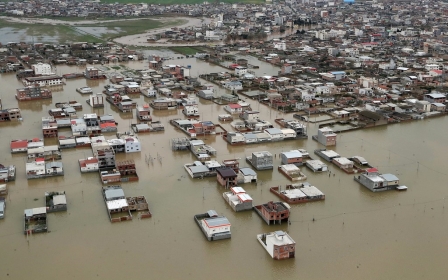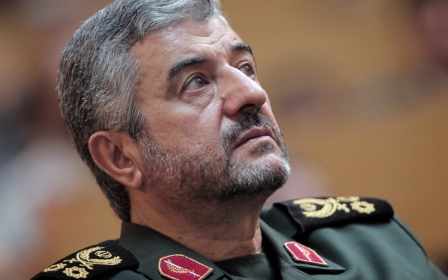Ordinary Iranians may pay price for US blacklisting Revolutionary Guards
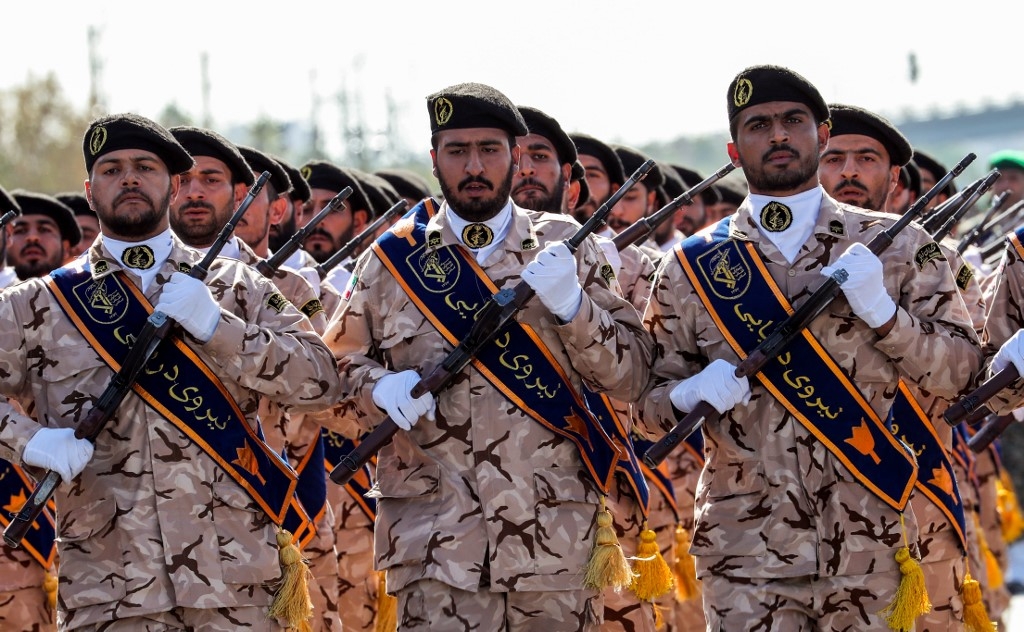
The US designation of Iran's Islamic Revolutionary Guard Corps (IRGC) as a terrorist group may have far-reaching effects on Iranians who may not be willingly associated with the group, an advocate told Middle East Eye.
The IRGC is deeply involved in many aspects of Iranian society with ties to the media, disaster relief, industrial construction, shipping, telecommunications, domestic politics and foreign policy.
Even the Iranian scouts' programme for children is run through the IRGC.
The details of how the US designation will be applied are particularly murky for Iranian expats, said Ryan Costello, policy director at the National Iranian American Council.
For example, Iranian law requires mandatory military service for men over the age of 18, and those drafted may have no choice but to join up if chosen for the IRGC.
New MEE newsletter: Jerusalem Dispatch
Sign up to get the latest insights and analysis on Israel-Palestine, alongside Turkey Unpacked and other MEE newsletters
"This is the first time that someone could be conscripted into an entity that the US has designated as a foreign terrorist organisation," Costello told MEE.
"So what happens then if an individual is unable to get out of their mandatory military service?"
Blacklisting the group also potentially opens US citizens who deal with Iran in seemingly innocuous capacities to criminal penalties, including charges of providing material support to a terrorist group.
Washington has not made it clear how it will enforce the designation.
Unprecedented step
On Tuesday, Washington blacklisted the group in an unprecedented move against a state entity. Secretary of State Michael Pompeo has called the decision a logical next step in its "maximum pressure campaign" against the Iranian government.
"This was an easy decision reflecting reality," Pompeo said at a congressional meeting on Wednesday.
The group is set to officially be placed on the terror list on 15 April.
The IRGC is an elite branch of the Iranian military that operates independently of the regular armed forces controlled by the elected Iranian government. The IRGC is believed to count roughly 125,000 members and wield unparalleled power in Iran.
Founded in 1979, the group was created by loyalists to the country's first supreme leader, Ruhollah Khomeini, as a force that would protect Iran’s revolution.
Today, the IRGC answers directly to Ayatollah Ali Khamenei, the country's current and second supreme leader.
The IRGC's alleged support to Lebanon's Hezbollah, Palestinian groups including Hamas and the Islamic Jihad, al-Ashtar Brigades in Bahrain, and other groups on the terrorist group list are part of the reason for Washington's designation.
The designation follows a string of recent US measures taken against Tehran after President Donald Trump pulled Washington out of an international nuclear agreement with the Iranian government in 2018.
While the Trump administration has celebrated the decision to blacklist the Iranian group, the State Department and White House have been unclear on how the designation will be implemented.
How someone could cut previously made ties with the IRGC and its affiliates in a way that would be satisfactory to the US government is also unclear.
State Department officials on Monday refrained from getting into what they called "hypotheticals" when pushed for details after the initial announcement.
Still, the IRGC is far from just a military group - it wields enormous influence over the Iranian economy.
'Open-ended questions'
While Iranian President Hassan Rouhani has attempted to limit the IRGC’s powers, he has been unsuccessful.
"There [are] a lot of open-ended questions about how this is going to be enforced," said Costello of the National Iranian American Council.
Anyone who could be considered to be providing the IRGC, its members or supporters with "material support or resources" - a broad determination - may face the consequences of the law, ranging from having a US visa denied or revoked to 20 years in prison.
'There [are] a lot of open-ended questions about how this is going to be enforced'
- Ryan Costello, policy director at the National Iranian American Council
During his congressional meeting on Wednesday, Pompeo said that the "world changed" for some international bankers when the designation was announced amid the IRGC's deep ties within the Iranian economy.
"If you're thinking about doing business or providing material support in any way with any company that might be connected to the IRGC, this sanction will cause you not to do that," Pompeo said.
While Pompeo said the "historic step" of classifying the IRGC as a terrorist group will deprive Iran of "the resources to continue their terror campaign around the world", Costello said the designation is unlikely to have much of an impact on the IRGC as an institution or on Iran itself.
The damage to Iran's economy was already done by the Trump administration's previous sanctions, Costello explained.
"This is not going to have a huge effect on the Iranian economy, because right now there are already very few business ties with the outside world that have been continuing amid the snapback of nuclear-related sanctions," Costello said.
"Banks already don't want anything to do with the Iranian economy because of Trump's pressure campaign," he said. "This is just one more step."
Middle East Eye delivers independent and unrivalled coverage and analysis of the Middle East, North Africa and beyond. To learn more about republishing this content and the associated fees, please fill out this form. More about MEE can be found here.


